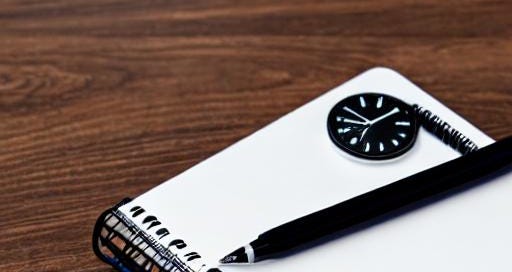Confession time: I don’t maintain much of a boundary between work and the rest of my time. I’ve spent much of my career running my own business, and even when I’ve had in-the-office jobs, I was always freelancing on the side. So my work day is never officially “done.” A home office facilitates this; I can always go back in. Even when I became a parent, and had to pick up a kid at daycare or send a sitter home, I’d often jump back on after kid bedtime. I’ll do some work on weekends as well if there’s something I need to tackle.
The result is that for what must have been years, I never turned off my laptop. This worked until it didn’t. At some point during the summer two years ago, my trusty MacBook Pro just burned out. The folks at the Apple Store were able to fix it, but I decided that maybe I should actually shut it down at the end of the day from time to time.
This experience got me interested in the idea of shut down rituals in general. From what I can tell, they’re not nearly as common as beginning-of-the-day rituals. People who are interested in productivity will usually at least think about the start of their workdays, and what they’d like to accomplish first. But the end of the work day can be all over the map.
Sometimes that’s life — the end of the workday can be unpredictable. But even if you do intend to do a little more work at night after your kids go to bed, or after you go to your softball practice, a proper shut down ritual can set you up for a great evening, and a great next day.
Don’t wait until the last minute
So what should it include? First, it should start quite a while before you actually intend to leave. An hour or so before quitting time, revisit the day’s to-do list. What absolutely needs to happen before tomorrow? You can either buckle down and get it done, or if you work at night sometimes, consciously decide to block it in from, say, 8:30-9:30 p.m. But in any case, you make a choice and a plan. If something is not going to happen, you need to be honest about it, and whether it should get pushed to tomorrow or — here’s a thought — whether it actually needs to happen.
If there’s anyone you need to speak to, now would be a good time. If you leave it until the last minute, this will just delay your trip out the door when people decide you need a lengthy conversation.
About 20 minutes before quitting time, you can save any work or send off anything that’s supposed to go in. Then, you can spend a few minutes reflecting on the day. What went well? How can you capitalize on that? What needs to change? How can you make that happen? Are you happy with how you spent your time, or would you like to re-work your schedule?
Make a plan
Then spend a few minutes planning what needs to happen tomorrow. Look at your calendar so you’re familiar with the day’s landscape. When do you have appointments? How long will each take? Do you need to do any more preparation for these?
What other priorities do you have for the day? List your top three, or four to five at most. How long will each of these things take? Put an estimate next to each. Now, look at the next day’s schedule and see where you can fit these things in. Taking a few minutes to do this allows you to make strategic choices. For instance, if you have some chunk of work that’s going to take 90 minutes, and you have a meeting at 10:00 a.m., you might decide to be in your desk and working by 8:30 so you can get it done. This means you don’t have to find a 90-minute slot later, which might become more difficult to come by as time goes on.
Map out the day, and be sure to leave plenty of open space. Knowing the plan means when you show up the next day, you won’t waste valuable time and mental energy deciding what to do. Yes, schedules can change, but they might not change. Best to have a plan.
Then, finally, think about your evening, or your “golden hours” as I call them. What would make your evening feel good? If you and your family have plans, great. If not, set an intention: maybe to call a friend, lift weights in your basement, cook that slightly more elaborate dinner you’ve been thinking about, or read 50 pages in the novel you just picked up. When we think through our personal time, it starts to seem bigger in our mental accounting — which is good for reminding us that we don’t actually spend all our time working, even if it feels like it.
Then you can grab your things and walk out the door, feeling good about your day. You can do the same thing from a home office too. Even if you’ll be going back in, you can shut the door and consciously consider yourself off the clock for a while. If nothing else, your laptop will thank you.




This is perfect timing, as I've recently been thinking how my morning and shutdown routines (or how I 'bookend' my days, as I refer to it) often seem to need a little shakeup when the seasons change. Thank you for the ideas!
Flylady calls this the Before Bed Routine, and says to start early. Could be as early as when you're making dinner. She also recommends a Launch Pad area for everything you need to launch out the door the next morning. I love the work-specific suggestions in this article. Ending the day well can make all the difference in how you begin tomorrow!